What are the benefits of bitter orange and how is it used?
Orange, bitter orange, chinotto, bigaradia, Chinese apple are all names of the fruits of an evergreen citrus plant. The rich chemical composition, rich taste and aroma, abundance of essential oils in leaves, unripe fruits, peel and flowers, low energy value allow orange to be widely used in cooking, folk medicine, aromatherapy, cosmetology and dietetics.
Description
Orange (lat. Citrus aurantium) is an evergreen tree from the genus Citrus, family Rutaceae.. According to geneticists, this is a hybrid of tangerine and pomelo, the closest relative of lemon.
The fruits are rarely consumed in their natural form due to the abundance of essential oils and a very specific taste.
Other names for the fruit:
- sour or bitter orange;
- bigaradia;
- Chinotto;
- bigarade;
- Chinese apple;
- Seville orange.
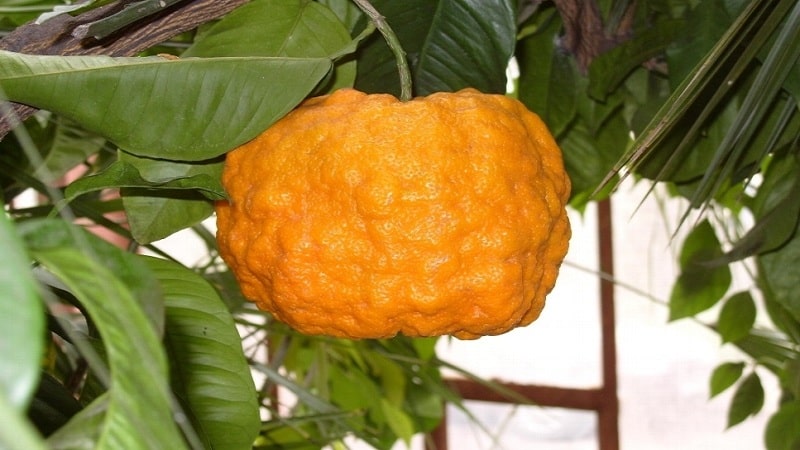
Tree 2–10 m high with long spiny branches. The leaves are petiolate, arranged alternately, leathery, glossy. The front side is green, the back is light green with essential oil storage. The petioles are long, broad-leaved, sharply tapering towards the base.
The flowers are large (2-3 cm in diameter), arranged singly or in axils of 2–7 pieces, exude a fragrant aroma. The pubescent calyx is four- and five-toothed. The corolla consists of 4–8 white oblong fleshy petals that contain essential oil.
Reference! The plant blooms in April - May, bears fruit in November - January.
The fruits are berry-shaped, ball-shaped, sometimes flattened at the poles. Diameter - 6-7 cm. The peel is thick, lumpy, bright orange, easily separated from the pulp, and contains essential oil. The pulp consists of 10–12 cloves, sour with bitterness.
Light yellow seeds, flattened-wedge-shaped with furrows. The ovaries are dark green in color and are formed on the 3rd day of flowering.
Interesting! The flowers of bitter orange are called orange blossom. They were used to create bride's wedding decorations as a symbol of innocence, and were woven into wreaths and bouquets.
Origin and distribution
The birthplace of culture is Southeast Asia. From there the plant spread to the Middle East, to India through Persia. Arab merchants brought culture to Europe, namely to Spain.
Orange is grown in countries located on the Mediterranean coast, in Paraguay, the Caucasus, the islands of the West Indies, India, Abkhazia, and the Caribbean. Bitter orange is not found in the wild.
In European countries, the harvest is harvested once a year.: October – December. In this case, flowering begins in April. In the tropics, orange blossom bears fruit twice a year, before the rainy season.
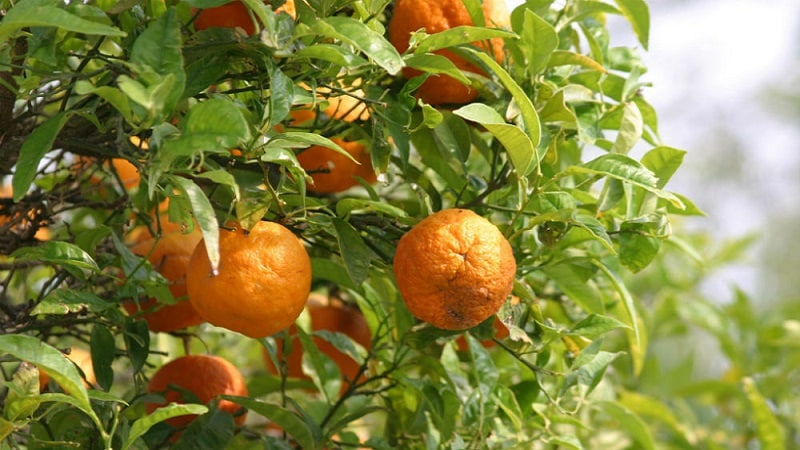
Composition and properties
Bitter orange fruits contain:
- citric, malic, salicylic, gallic acids;
- pectins;
- aldehydes;
- glycosides hesperidin and isohesperidin;
- tannins and bitterness.
Unripe fruits, leaves and stems contain petitgrain orange oil., which contains β-pinene, nerol, camphene, geraniol, D-α-terpineol, limonene, dipentene, L-linalool, and sesquiterpenes.
Reference! Orange peel oil has a lemon aroma, and the composition and properties are similar to orange oil.
The essential oil from the flowers is called neroli.. It has a subtle pleasant aroma, contains geraniol and linalool, limonene, camphene, nerol and other terpenes, acetic and benzoic acids. It has calming properties and stimulates cell growth.
To obtain essential oil from unripe fruits and flowers, 2 methods are used:
- steam distillation;
- enfleurage - extraction with fatty oil.
Essential oil from the peel of ripe fruits (orange or bitter orange) is extracted by pressing without preheating.
Leaf oil called petitgrain, from flowers - neroli.
Interesting things on the site:
KBZHU
The energy value of the product is low. The zest is mainly used for food..
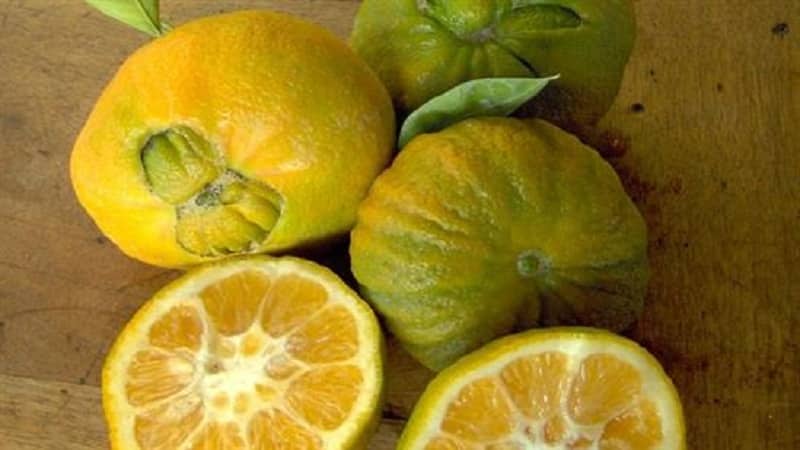
Nutritional value of 100 g of product:
- calorie content - 53 kcal;
- proteins - 0.81 g;
- fats - 0.31 g;
- carbohydrates - 11.54 g;
- water - 82.5 g;
- ash - 0.5 g.
Benefit
Useful properties of bitter orange:
- diaphoretic and anti-inflammatory;
- antiseptic and bactericidal;
- analgesic and antispasmodic;
- anticoagulant;
- bile and diuretic;
- tonic;
- laxative, carminative and antiemetic;
- antitussive and expectorant;
- immunostimulating;
- regenerating;
- anti-sclerotic.
Orange relieves nervous tension, reduces irritability, normalizes sleep, improves memory and attention. Tincture from the peel of ripe fruits stimulates appetite and improves digestion. Orange oil strengthens the cardiovascular and endocrine systems.
Due to the high content of essential oils, the plant is contraindicated pregnant women and children.
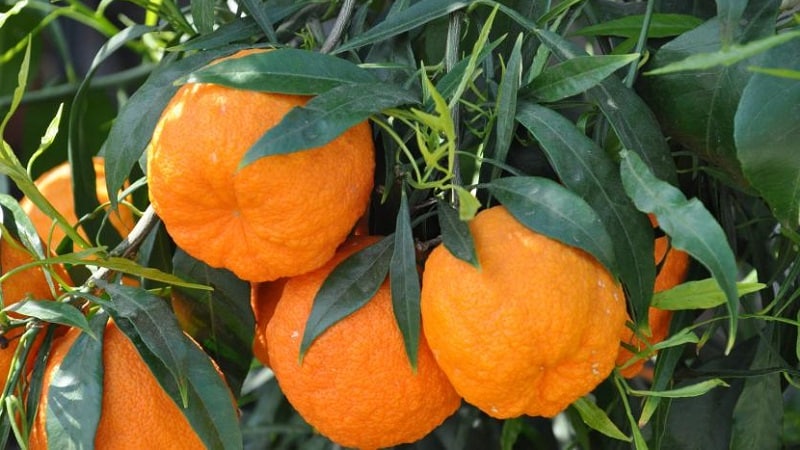
Application
Essential oil, extract, orange peel are widely used in cooking, folk medicine, aromatherapy, cosmetology, dietetics.
In cooking
The fruits of bitter orange are used in many cuisines around the world. Of them prepare candied fruits, marmalade, refreshing and alcoholic drinks, ice cream, salads, jam, decorations for desserts and cakes. Grated zest gives curd, butter and yoghurt creams an intense yellow tint and a pleasant aroma.
Important! When fresh, the fruits are inedible.
The taste of bitter orange is best revealed in hot dishes.. It is used in sauces, marinades for red meat and poultry. To preserve the fresh orange note, add juice and zest at the end of cooking.
Orange bitters are prepared from orange blossom. - an alcoholic drink with a peculiar bitter taste. It is often added to cocktails. The cost of bitter is high, but it can also be prepared at home.
For the classic recipe you will need:
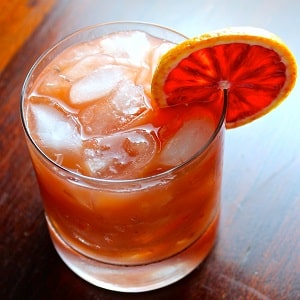 500 ml vodka;
500 ml vodka;- 50 g dried and 100 g fresh bitter orange zest;
- 1/2 tsp. cardamom;
- 1/3 star anise;
- 2 tbsp. l. brown sugar;
- 1/2 tbsp. l. dried gentian root;
- 1/2 tbsp. l. tinctures of cinquefoil and angelica roots (as bitterness).
Preparation:
- All components, except sugar and tincture, are crushed and poured with vodka.
- The container is stored in a dark place for 2 weeks, shaking occasionally. The alcohol level is constantly monitored as the zest actively absorbs liquid. If necessary, add vodka and shake the contents.
- After 2 weeks there is a tasting. If the orange taste is weak, leave the liqueur for another week or add a portion of zest.
- At the end of cooking, the liqueur is filtered.
- Brown sugar is poured into 50 ml of water and placed on low heat.As soon as the mass acquires a caramel hue, remove the container from the heat and cool slightly. Then gradually add it to the liqueur, close the container and shake.
- The drink is infused for 4-5 days, bitterness is added, tasting the alcohol.
The main thing is not to add too much tincture, otherwise the finished product will be too bitter. The strength of the liqueur should be 30%.
Read also:
What is a tangerine: where does it come from, how and where does it grow?
In folk medicine
In folk medicine, bitter orange oil, zest, seeds and flowers are used.:
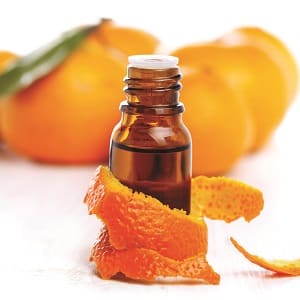 High effectiveness is observed when using essential oil in the treatment of infected wounds.
High effectiveness is observed when using essential oil in the treatment of infected wounds.- The fruits are used as a carminative and laxative.
- The seeds are used for coughs, chest pain and colds.
- The zest strengthens the heart muscle: the dried peel is ground into flour and taken 10 g per day with water.
- Orange has lymphatic drainage properties and prevents the development of atherosclerosis.
- Antispasmodic properties relieve migraines, headaches, and muscle cramps. To treat headaches, an ointment based on the peel is used: it is ground and mixed with apple cider vinegar to form a thick paste. The product is applied to the temporal area and left for 20 minutes, then washed off.
- Bitter orange juice mixed with water in a 1:1 ratio is used to gargle for sore throat and laryngitis.
- Tampons soaked in juice stop nosebleeds.
- The oil helps get rid of hyperhidrosis and dermatitis.
- Juice from the fruit eliminates hangover syndrome due to its antitoxic properties.
- To reduce joint pain, use the following infusion: 20 g lemon balm, 10 g St. John's wort, 10 g orange flowers, 5 g rose hips. For 1 tbsp. l. collection, take 100 ml of boiling water and leave for 15 minutes. The product is taken three times a day, 100 ml.
- Based on this collection, an alcohol infusion is prepared for rubbing ligaments and joints. The crushed raw materials are poured with 450–500 ml of vodka and infused in a dark place for 14 days. Then filter, squeeze out the herbs.
- To normalize sleep, use a herbal mixture: 10 g of valerian root, 10 g of hops, 10 g of lemon balm, 10 g of bitter orange flowers. For 1 tbsp. add 2 tsp boiling water. aromatic collection, leave for 10 minutes and take 100 ml in the evening.
In Arab countries, bitter orange is used as an antidepressant. thanks to its tonic and soothing properties. The oil reduces nervous excitability, eliminates attacks of anxiety and neurasthenia.
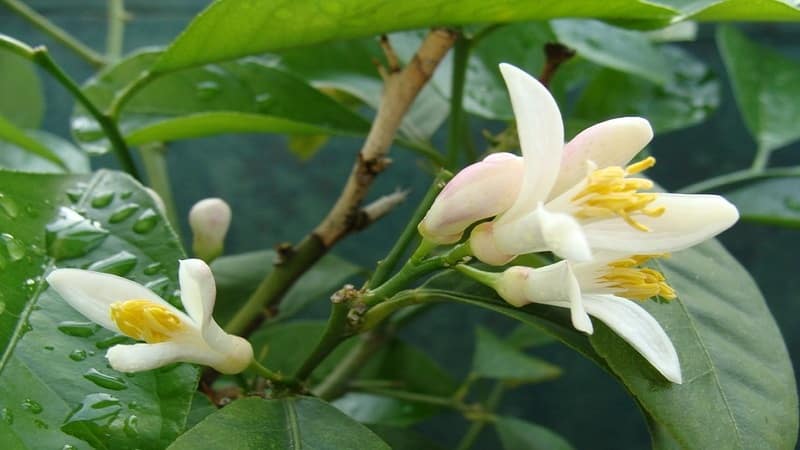
In cosmetology
In cosmetology, bigaradium used for the preparation of deodorants, creams, lotions, masks, balms and shampoos for hair, perfume.
Hair products eliminate itchy scalp, dandruff, strengthen hair follicles, restore hair after bleaching, perm, prolonged exposure to ultraviolet radiation.
Essential oil and dry orange extract have a pronounced anti-cellulite property. The products accelerate blood microcirculation and metabolism in problem areas, reduce volumes by removing excess fluid from tissues, and tighten the skin.
Bitter orange effectively fights acne, tightens pores, eliminates blackheads by regulating sebum secretion.
Interesting! The fashion for neroli was introduced by Anna Maria Orsini, Princess of Neroli.In those days, the oil was endowed with magical properties and was considered the strongest aphrodisiac. On its basis, love potions and potions were prepared for women trying to become pregnant without success.
Oil is used for rejuvenation and nutrition of dry skin of the face and body.
In aromatherapy
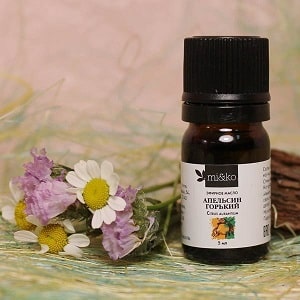 The properties of orange essential oil are used in aromatherapy to tonify the body., eliminating depression, increasing sensuality, creating a romantic flair. In ancient times, it was considered a “balm for a wounded heart,” helping to cope with the blows of fate.
The properties of orange essential oil are used in aromatherapy to tonify the body., eliminating depression, increasing sensuality, creating a romantic flair. In ancient times, it was considered a “balm for a wounded heart,” helping to cope with the blows of fate.
Baths and inhalations with bitter orange relieve chronic fatigue, depression, insomnia, nightmares. The oil warms, increases potency, sexual energy, and awakens intuition.
For use in aroma lamps, the area of the room is taken as a basis.: at 15–20 m2 5-6 drops are enough. Add 1-3 drops to aromatic medallions.
Add 4-5 drops of oil to a hot bath, pre-mixed with milk. It does not dissolve in water and remains as a film on the body, causing a burning sensation. Milk acts as an emulsifier.
Interesting! The aroma of orange is a symbol of energy, striving for heights, leadership, glory and nobility.
In losing weight
Bitter orange contains the substance synephrine, which stimulates metabolism. accelerating the rate of contraction of the heart muscle, increasing blood pressure. Thanks to these properties, bitter orange is added to weight loss medications. However, the evidence base for the effectiveness of such drugs has not yet been presented. Their use is considered unsafe due to side effects: tachycardia, arrhythmia, chest pain, shortness of breath.
There is no mono-diet based on bitter orange, since it is not consumed in its natural form.. Zest and freshly squeezed juice are added to fruit drinks, water or tea. Weight loss occurs due to a pronounced diuretic effect, but only excess water leaves the body; this does not affect the breakdown of fats.
Uses of bitter orange extract
In addition to essential oil, bitter orange extract is used in pharmaceuticals.. It reduces appetite, stimulates heat exchange, and mobilizes lipid metabolism.
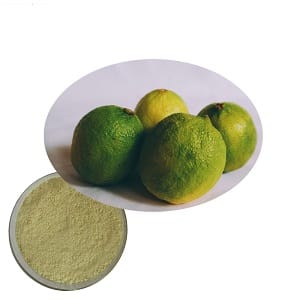 Pharmacies sell tablets and capsules with extract, which is extracted from the peel using the extraction method. They are dietary supplements with unproven effectiveness, however manufacturers claim that such products:
Pharmacies sell tablets and capsules with extract, which is extracted from the peel using the extraction method. They are dietary supplements with unproven effectiveness, however manufacturers claim that such products:
- normalize heart function;
- prevent thrombosis;
- improve venous circulation;
- improve the condition of facial skin;
- restore vital energy;
- normalize sleep.
Harm and contraindications
Bigaradia is not recommended for use:
- if you are allergic to citrus fruits or have an individual intolerance;
- during pregnancy and breastfeeding;
- children under 3 years old;
- for gastritis, pancreatitis and stomach ulcers.
Bitter orange juice negatively affects tooth enamel, so it is diluted with water or tea in a ratio of 1:2.
It is recommended to take preparations with orange extract with clean water., avoid combination with coffee and other medications that accelerate the heart rate.
In case of overdose there are headache, nervous tension and tachycardia.
Conclusion
Bitter orange, or bitter orange, is little known in our area, but it is actively grown in Mediterranean countries, Southeast Asia, India, Abkhazia, and the Caribbean Islands. Essential oils, organic acids, glycosides and pectins have antibacterial, anti-inflammatory, immunomodulatory and diaphoretic effects.
Orange is used in the treatment of acute respiratory viral infections, laryngitis and tonsillitis, to prevent thrombosis, improve memory, regulate the gastrointestinal tract, and increase appetite. Essential oils (neroli, petitgrain) are added to anti-cellulite cream, hair and skin products, and aroma lamps to improve the psycho-emotional state.